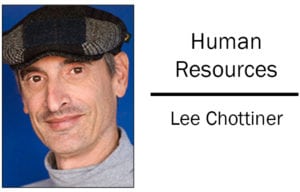 When Rabbi Alfred Gottschalk, then-president of Hebrew Union College-Jewish Institute of Religion, ordained Sally Priesand in 1972 (over the objections of many of her soon-to-be colleagues), he made history.
When Rabbi Alfred Gottschalk, then-president of Hebrew Union College-Jewish Institute of Religion, ordained Sally Priesand in 1972 (over the objections of many of her soon-to-be colleagues), he made history.
Priesand became the first woman rabbi ordained in America.
Since then, women have been entering the clergy in ever-growing numbers. In some years, they have far outstripped the number men entering the rabbinate – and the cantorate – at least among Reform Jews.
(Some years ago, I interviewed Priesand at a conference in New Jersey. The now-retired glass ceiling breaker told me how she had just attended that year’s ordination of rabbis in New York. There was just one man in the class, so after the ceremony, she walked up to him and said, “I know just how you feel.”)
It hasn’t all been good news for women in the rabbinate. Many are irked by the recent decision of a large congregation in Cleveland to pass over an assistant rabbi with 30 years at that temple for a man. They also were upset when a qualified female candidate for dean of the Cincinnati campus of HUC-JIR didn’t get the job.
Nevertheless, women occupy positions at many levels of the Reform rabbinate today.
One notable exception remains: No woman in the movement has ever performed smicha – ordained – other Reform rabbis.
No woman has ever placed her hands on the shoulders of a HUC-JIR rabbinic candidate and symbolically passed on the tradition – an unbroken chain that goes back to Isaac M. Wise, the founder of the school, and into antiquity.
It’s time for a change.
Last month’s death of HUC-JIR President Rabbi Aaron Panken in a plane crash mortified the Reform movement. Panken was young, energic and brimming with ideas for training future rabbis, cantors and educators. Enrollment climbed on his watch. He will be missed.
Yet the school now has a historic opportunity: The next president of HUC-JIR should be a woman. It’s one of the movement’s last glass ceilings.
It’s been half a century since Priesand’s ordination. Since then, a wellspring of talented women has filled the clergy.
We need only drink from that well.
Naming a woman to lead the seminary would be a bold move, but it wouldn’t be a first. Rabbi Deborah Waxman has been president of the Reconstructionist Rabbinical College since 2014. And Rabbi Sharon Cohen Anisfeld will be installed as president of Hebrew College, a nondenominational seminary in Newton, Massachusetts, on October 25.
But the history of women taking leadership roles in the religion goes back even further – to biblical times.
“We did have women judges, and they played leadership roles, “said Rabbi Gary Zola, executive director of the Jacob Rader Marcus Center of the American Jewish Archives in Cincinnati. “You had Deborah. You also have examples of women scholars in the Talmud. Bruriah (a second century figure who is said to have learned 300 halichot – laws – in a single day) is the most famous.”
But no woman has ever headed a rabbinical seminary as large as HUC-JIR, which has four campuses on two continents, educating some 400 full-time students in the rabbinic, cantorial and education tracks.
This is a major job, and the search committee, which is only now beginning its work since the period of shloshim – 30 days of mourning – for Panken has ended, must consider every option. Joy Greenberg, chair of the presidential search committee, just sent an eblast to alumni, calling on them to nominate potential candidates.
There are plenty of questions her committee must consider:
Even if a man is better qualified, should a woman be hired merely because it’s a bold choice?
Must the next president have a doctorate?
Does the next president even have to be a rabbi? Why can’t he (or she) be a cantor, or an educator? (The chancellor of the Jewish Theological Seminary, Arnold Eisen, is not a rabbi.)
I asked Louisville’s three female Reform rabbis to name some potential candidates for the job. Here are some of their favorites:
Rabbi Amy Schwartzman, senior rabbi of Temple Rodef Shalom in Falls Church, Virginia (1,715 families) and past executive board member of the Central Conference of American Rabbis.
Rabbi Andrea Weiss, associate professor of Bible at HUC-JIR, a Ph.D., and associate editor of The Torah: A Women’s Commentary, which is widely used in synagogues across the movement.
Rabbi Tamara Cohn Eshkenazi, professor of biblical literature and history at HUC-JIR and the first woman appointed a professor to the school’s rabbinic faculty; also a co-editor of The Torah: A Women’s Commentary.
This is just a tiny taste of what’s out there. They represent a generation of able rabbinic leaders whose time has come.
(Lee Chottiner is editor of the Jewish Louisville Community.)


